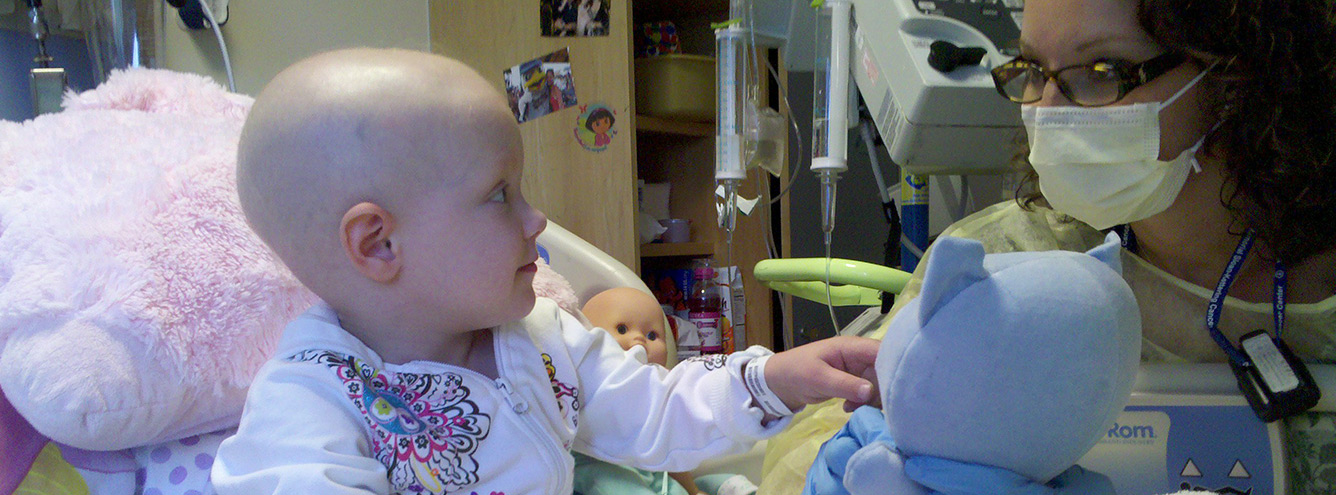Trilateral and extraocular retinoblastoma require very intensive treatment to save the child’s life.
Bone marrow transplant (BMT) and peripheral blood stem cell transplant (PSCT) are complex cancer-fighting procedures.
Before transplant, bone marrow is destroyed by super-high doses of chemotherapy. Healthy marrow or stem cells are infused like a blood transfusion to “rescue” the bone marrow.
Extensive retinoblastoma spread beyond the eye is rare in developed countries. However, limited experience with transplant for retinoblastoma shows promising results in treating extraocular relapse. Doctors also find some success in using transplant to treat trilateral retinoblastoma.
Retinoblastoma that has spread from the eye to the central nervous system (brain and spine) continues to have very poor prognosis, even with bone marrow transplant.
Transplant often offers low chance of cure for a child with extensive retinoblastoma, but is the last ray of hope in saving the child’s life.
Transplants are very expensive, technically complex and potentially life-threatening. They are unavailable or inaccessible in most developing countries where high proportions of children with retinoblastoma are diagnosed with extraocular cancer.
Families contemplating transplant will be experiencing a time of deep crisis. Absorbing information and understanding the implications of treatment may be very difficult. We hope this information will help make the process clearer and a little less daunting.
Autologous peripheral blood stem cell or bone marrow transplants are most often used to treat trilateral and extraocular retinoblastoma. Rarely, allogenic or syngenic transplant may be used.
Transplant consists of super high dose chemotherapy, followed by infusion of stem cells or marrow harvested before the chemotherapy.
Careful planning and preparation before transplant can minimize the emotional and practical challenges of this intense experience.
Infection is the most common complication of transplant. Less common complications are veno-occlusive disease and graft failure.
Intensive therapies used in stem cell and bone marrow transplant can cause major effects that may not become apparent until months or years later.
Transplant is a complex procedure. Ask as many questions as you need to before giving consent. You may want to seek a second opinion.


